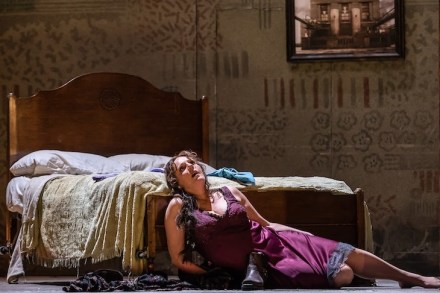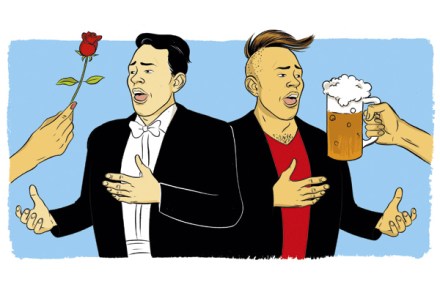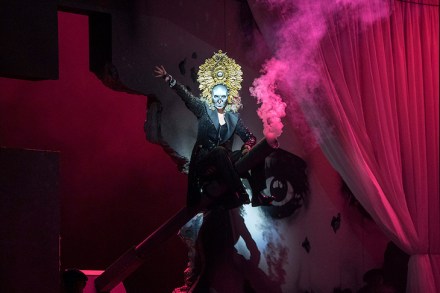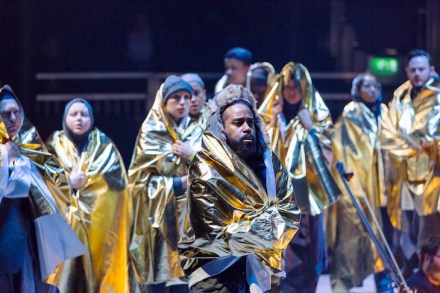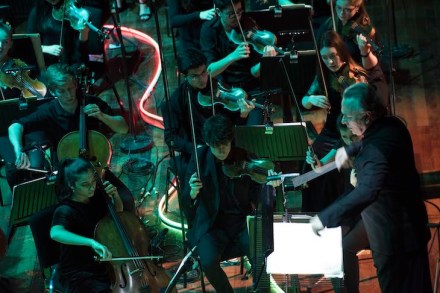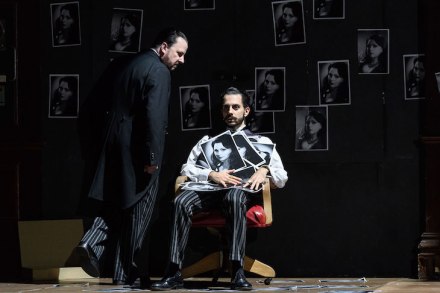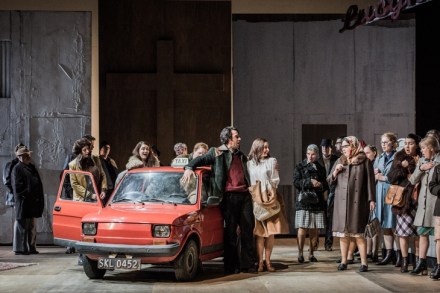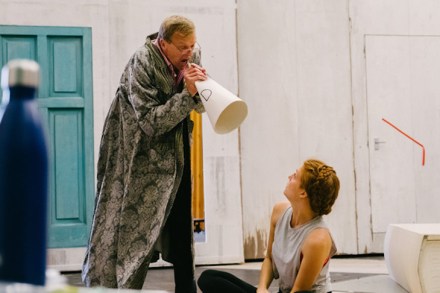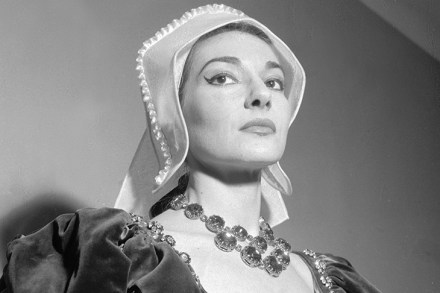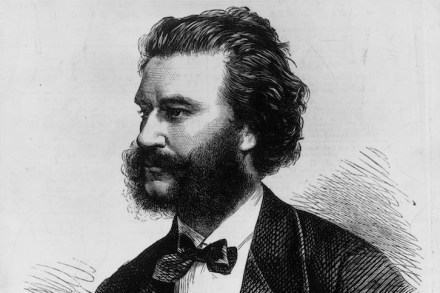Russian ragout
There is famously no door into the late-night diner of Edward Hopper’s ‘Nighthawks’. Its three silent patrons are trapped behind the plate-glass window — specimens of urban disaffection and isolation. In Richard Jones’s Lady Macbeth of Mtsensk it’s the windows that are so disquietingly absent. John Macfarlane’s designs propel the action of Shostakovich’s final opera
